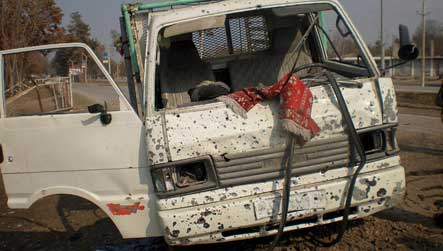“We want Afghanistan to be able to defend itself, that it has a stable government and that its own security forces can protect the country,” the chancellor told the Frankfurter Allgemeine Sonntagszeitung in an interview published Sunday.
“When we’ve achieved that then Afghanistan won’t need our soldiers anymore.”
“A debate over a possible withdrawal [of German troops] would play directly into the hands of those powers that aim to destabilise Afghanistan.”
At the same time, Merkel reiterated her opposition to increasing the German troop contingent. Germany currently has 4,500 soldiers stationed in Afghanistan, as part of a NATO force of around 60,000, of which about half are American.
Opposition to German involvement in the war in Afghanistan runs high in Germany. At least 30 German soldiers have been killed so far in seven years of fighting.
The chancellor said she looked forward to a change in the US presidency, since the future president Barack Obama would spur new discussions over the conflict in Afghanistan and on Pakistan’s role in the war.




 Please whitelist us to continue reading.
Please whitelist us to continue reading.